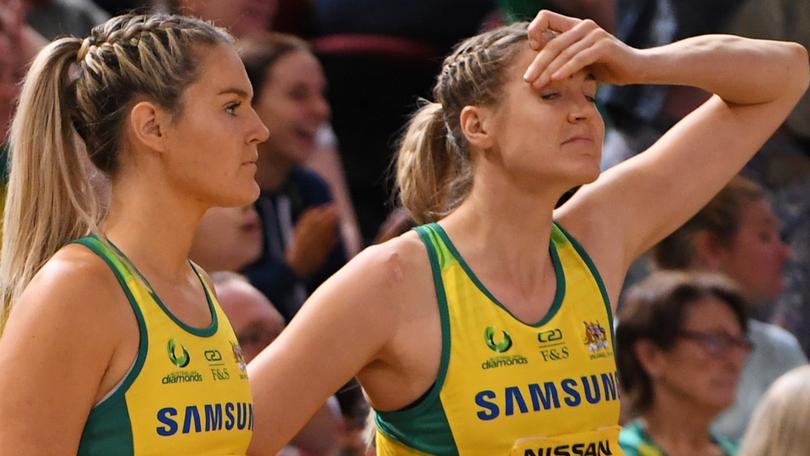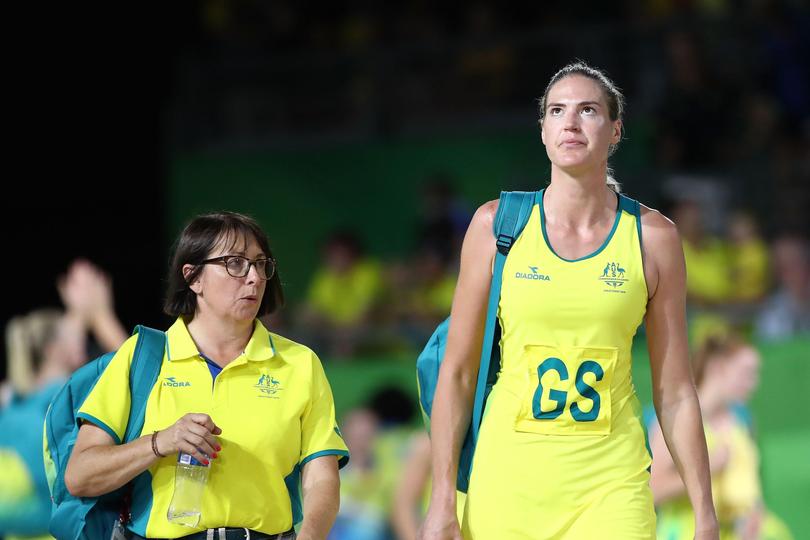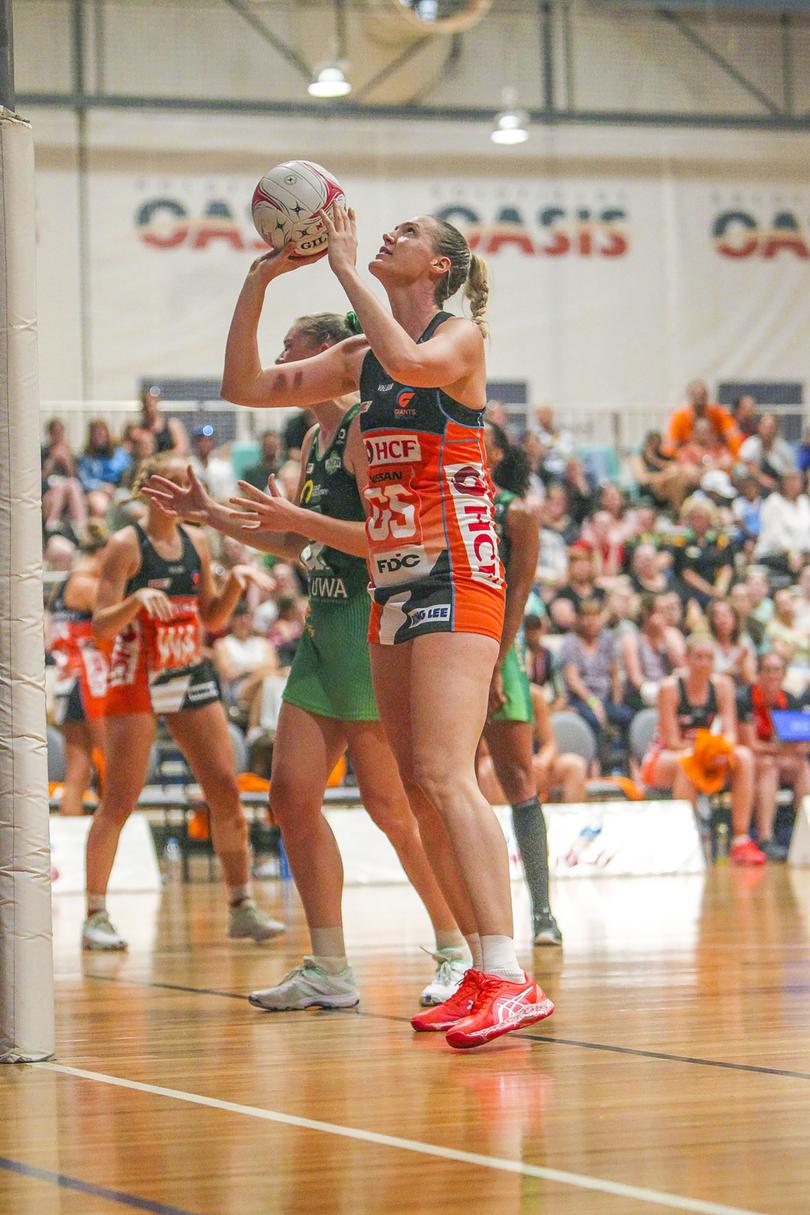Caitlin Bassett: Social media abuse a horrific part of daily life for professional athletes
CAITLIN BASSETT: You know you’ve made it as a professional athlete when you receive your first abusive message from an online troll.

You know you’ve made it as a professional athlete when you receive your first abusive message from an online troll — what a horrifically accurate thing to say.
We may attempt to laugh it off, speak up or even fight back, but at the end of the day, nothing will change until something is done about it.
One of the lowest points in my career was in 2020 when I injured my knee in a pre-season match and it was made worse when I had to scroll through countless comments saying things like “Thank god she can’t play, she deserves it, how did she hurt her knee she barely moves” and other sentiments to that effect.
Sign up to The Nightly's newsletters.
Get the first look at the digital newspaper, curated daily stories and breaking headlines delivered to your inbox.
By continuing you agree to our Terms and Privacy Policy.When I went to the club asking for something to be done I was told they didn’t have the power to moderate comments on their own social media.
Frustrated the only thing I could do was unfollow my own club online so I didn’t have to see the comments from fans who were thrilled at the fact I was sidelined.
I brought up the issue in a post calling for action from the sport which ultimately changed nothing.
When I was made Australian captain the abuse became a regular occurrence. I would receive comments on posts and messages from people telling me I was “a pathetic leader, and should quit” and “if I was a real leader I would bench myself”.
One day I snapped and took one of the messages and posted it on my Instagram story as an example to others of what life was truly like as an athlete. Fans were shocked at the reality but I was told off by Netball Australia for making an example of the person.
Trolling the trolls is not on apparently — they can give it but can’t take it.

The abuse I received during my career made me very guarded and I found it increasingly hard to interact with fans in person after games. Was the autograph I was signing for someone who had been sending me hate mail? I felt extremely vulnerable.
We often discuss the increased pressure modern athletes face and social media is a big contributor.
I was lucky that I was in my late 20s when I went through this, I can’t imagine having to go through that level of intense scrutiny at a young age like this generation of athletes.
It’s not as simple as just switching off or not engaging — as a netballer I was constantly encouraged to use social media to grow the sport and keep fans engaged.
The issue is prevalent across all codes and has been brought to light yet again this week, with Eagles coach Adam Simpson admitting the club has even had to call in the police over some vile messages to players.
Dockers star Jordan Clark is calling for greater protection for players, saying the abuse he copped after an on-field indiscretion was something that players lived with constantly.
Again, “just not looking at the comments” is not the answer for these guys. In fact, the league actively encourages fans to engage with them, posting links to their accounts all over club websites and tagging their personal accounts in AFL and club posts.

In the end, we’re going to end up seeing what is already happening in international leagues with massive supporter bases like the NBA in America: athlete accounts being run by third parties.
I used to think this was a silly idea, imagine receiving a message from your favourite athlete’s account only to find out it’s someone pretending to be them.
After experiencing the abuse firsthand I now think it’s a smart idea. The athlete can still grow their personal brand and sport but are distanced from the hate that is so easily sent.
Would this be an ideal outcome? Absolutely not.
But if it’s not the answer, then we need to find a solution sooner rather than later.
